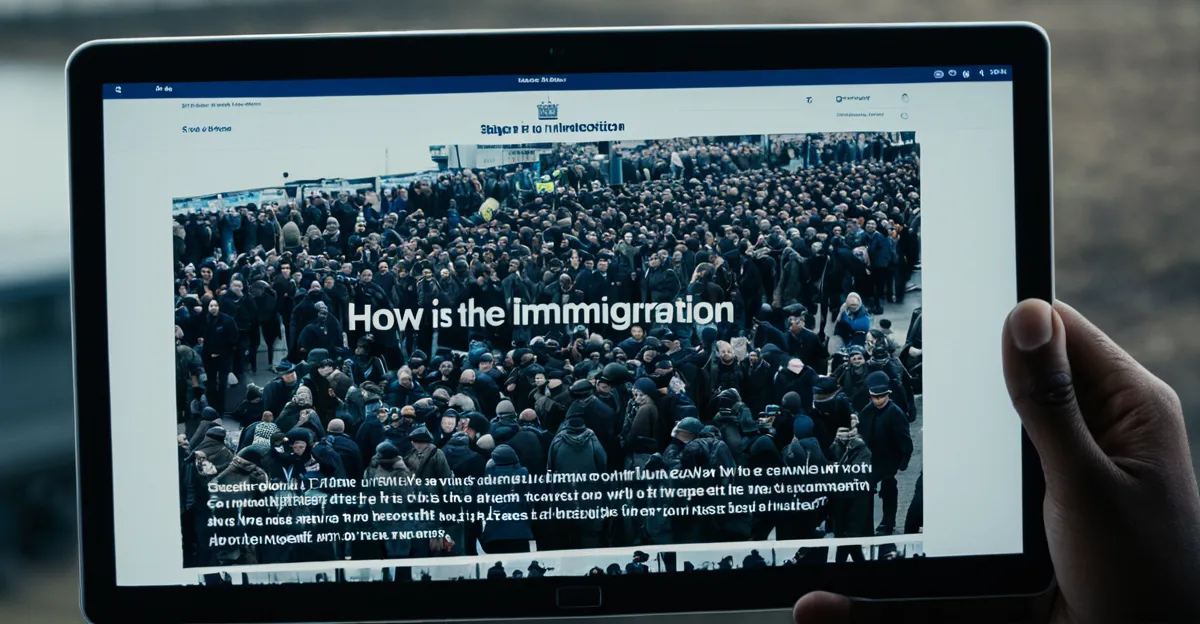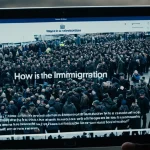Overview of the UK’s Current Immigration Challenges
Understanding the UK immigration problems requires looking at several pressing issues. One of the main challenges is illegal migration UK, which continues to strain border controls and resources. Asylum seekers UK have increased in number in recent years, heightening the urgency for effective management of claims and support systems. These pressures exacerbate existing strains on housing and social services, impacting both migrants and local communities.
Recent data shows a dynamic shift in migration flows, with fluctuating numbers of arrivals by sea and land routes. Economic factors and global conflicts influence these trends, complicating policy response. Additionally, the UK faces significant workforce shortages UK, especially in sectors such as healthcare, agriculture, and hospitality. These shortages stem partly from reduced net migration and policy tightening, which restrict legal immigration pathways for needed skills.
Also to read : How Will the Upcoming Political Decisions Impact Britain’s Future?
Balancing the need to curb illegal migration while addressing labour gaps poses a complex policy dilemma. There is a clear connection between immigration problems and the sustainability of public services and economic productivity. Addressing these intertwined challenges requires nuanced understanding of demographic shifts and migration patterns shaping the UK’s future.
Government Policies and Responses to Immigration Issues
The UK government immigration strategy has intensified focus on reducing illegal migration UK through stricter border control measures UK. Recent policy shifts aim to deter crossings by enhancing surveillance and increasing patrols along key entry points. These border enhancements are coupled with accelerated processing of asylum claims to manage the surge in asylum seekers UK more efficiently.
This might interest you : What Challenges Does the UK Face in Maintaining Its Cultural Identity?
In response to growing workforce shortages UK in critical industries, the government has reformed legal migration pathways, adapting work visas to attract needed skills while maintaining control over overall migrant numbers. For example, introduction of sector-specific visas targets shortages in health and agriculture.
The Home Office reforms focus on streamlining deportation procedures for unauthorized migrants to relieve pressure on resources. However, critics argue these measures may overlook humanitarian obligations. Balancing enforcement with support for legitimate migrants remains a policy challenge.
Overall, the UK immigration policy continues to evolve, combining stricter enforcement and targeted legal routes. This dual approach addresses illegal migration UK and workforce shortages UK simultaneously but requires ongoing adjustment to remain effective amidst shifting migration trends.
Legislative Actions and Political Debates
The Illegal Migration Act UK represents a cornerstone of recent efforts to tackle UK immigration problems by intensifying controls on unauthorized entries. This legislation, enacted to strengthen enforcement, criminalizes facilitation of illegal crossings and expedites removal procedures. Critics argue it complicates asylum processes, potentially compromising the rights of asylum seekers UK.
Parliamentary debates on UK immigration laws reveal stark divisions. Some parties push for robust border security and stricter penalties, emphasizing the need to curb illegal migration UK to protect public services and national security. Others highlight humanitarian concerns, calling for reforms that balance enforcement with protections for vulnerable migrants.
Beyond the Illegal Migration Act, several bills aim to modernize immigration frameworks, including refining visa criteria to address workforce shortages UK. Lawmakers scrutinize the impact of these laws on migrant communities and operational efficiency at borders.
Overall, political discussions interweave security, economic demands, and ethical duties. The evolving legislative landscape reflects ongoing tension between ensuring firm immigration control and accommodating legitimate migration needs in a complex, changing global environment.
Stakeholder and Public Responses
Stakeholder reactions to UK immigration problems reveal a complex web of concerns and priorities. Local authorities report that escalating numbers of asylum seekers UK put pressure on housing and social services, demanding coordinated support alongside enforcement. Law enforcement emphasizes the need for effective border control measures UK to manage illegal migration UK, while judicial bodies call for balanced approaches respecting legal rights.
Business groups express frustration over persistent workforce shortages UK, especially in agriculture, healthcare, and hospitality sectors. They frequently highlight how current visa restrictions complicate recruitment, urging reforms to legal migration pathways that better align with labour market needs. This practical perspective contrasts with public opinions UK immigration, which often focus on security and resource management.
Non-governmental organisations and migration advocacy groups stress humanitarian concerns, advocating for protections for vulnerable populations such as asylum seekers UK. They criticize overly stringent policies that may overlook human rights and integration efforts.
Together, these diverse viewpoints illustrate ongoing tensions between economic demands, enforcement imperatives, and humanitarian responsibilities. Effective immigration solutions require dialogue and policy flexibility that address the legitimate needs of stakeholders while controlling illegal migration UK and supporting vulnerable migrants.







